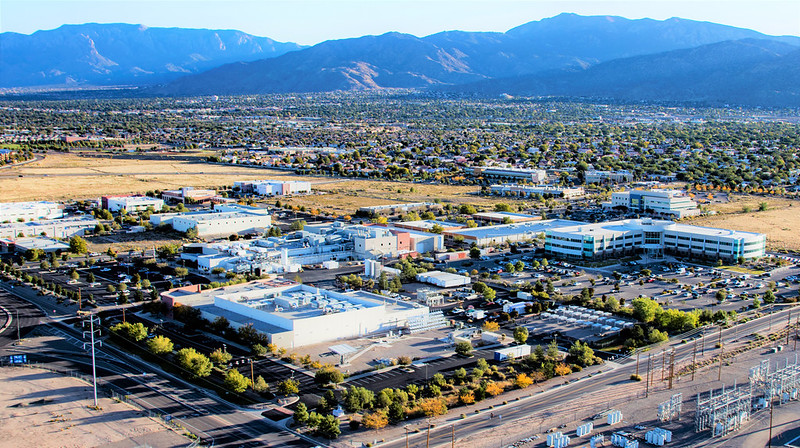Sandia National Laboratories (Photo: SNL)
For the latest installment of its webinar series—Spotlight on National Labs—the ANS Young Members Group focused on Sandia National Laboratories. The webinar, which took place on May 11, is available to view on demand.
Sandia National Laboratories Photo: SNL
The ANS Young Members Group will focus on Sandia National Laboratories for the latest installment of its webinar series, Spotlight on National Labs, on May 11 at 10:30 a.m. CT.
Register now for the free event.
Diver John Lehto (right) receives final instructions from Carter Thomas before entering a 300,000-gallon water tank at the Hanford Site. Lehto and Thomas are employees of Hanford Site subcontractor Associated Underwater Services. Photos: DOE EM
The Department of Energy’s Richland Operations Office contractors Central Plateau Cleanup Company (CPCCo) and Hanford Mission Integration Solutions (HMIS) teamed up recently to dive into inspection and maintenance activities at the Hanford Site in Washington state.
Project video: View this video for sights and sounds from this unique project.
Game changer in addressing I&C common cause failure protection








 President Biden has appointed
President Biden has appointed
 The National Nuclear Security Administration has launched
The National Nuclear Security Administration has launched 